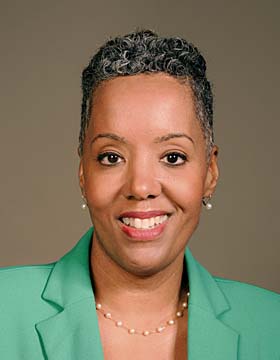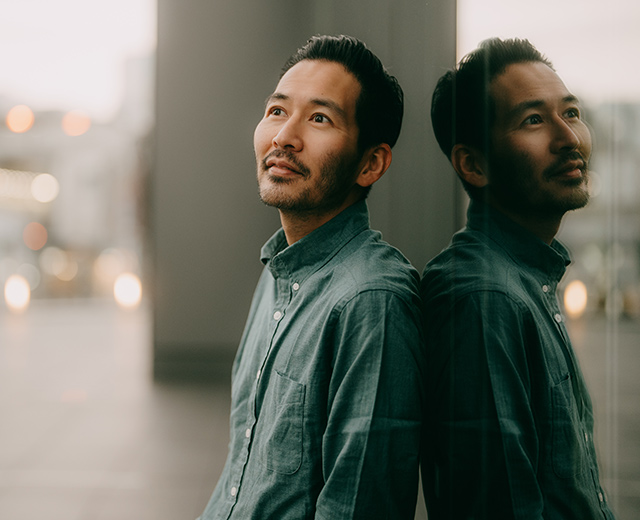As a medical sociologist, I’ve built a career around asking hard questions about disparities in health and healthcare, questions that don’t have easy answers, but that matter. From working as an HIV/AIDS prevention social scientist at the Centers for Disease Control and Prevention to designing community-based research in a major academic medical center, I’ve seen firsthand how social science drives real-world change. Today, I teach adult learners how to apply critical thinking, analytical reasoning, numeracy, and qualitative methods to uncover the stories behind both statistics and their own lived experiences.
I’ve never lacked professional opportunities, not because I code or engineer machines, but because I understand people, systems, and the social patterns that shape our world. The more we innovate, the greater our need for social science, to foresee and remedy both the well-intentioned and overt injustices that technology can create. In an age of automation, that kind of human insight is more than relevant; it’s indispensable. It’s been my superpower!
Transformational vs. Transactional Education
Most students pursue higher education to improve their job prospects. This is often viewed as transactional learning, focused on immediate employment outcomes. But education can also be transformational because it shapes how we think, lead, and solve complex problems. A strong foundation in the social sciences does both.
In today’s rapidly evolving technological landscape, many employers are seeking graduates with technical skills to meet the demands of an increasingly automated workforce. But technical skills alone aren’t enough. In 2017, Michael Litt, cofounder and CEO of the video marketing platform Vidyard, warned:
“While tech businesses are booming, many of the jobs waiting to be filled require broader skill sets than just great engineering chops. And in my experience, anyway, the truly irreplaceable jobs—not just of the future but of the present—are the roles that intermingle arts and science.”
More recently, Business Insider (2025) reports that, “Python, machine learning, and data analysis are increasingly inseparable.” This too is a reminder that the tech world’s rapid convergence of tools and data makes social science perspectives more relevant than ever.
A Historical Debate Revisited: Washington and Du Bois
We’ve seen a version of today’s skills debate before, during a time of profound racial injustice and restricted opportunity for African Americans. At the turn of the 20th century, Booker T. Washington and W.E.B. Du Bois offered what appeared to be competing visions for black education and social uplift. Washington promoted vocational and industrial training as a path to economic self-reliance within a hostile society, while Du Bois emphasized the need for a liberal arts education to cultivate leaders who could challenge systemic inequality.
However, Du Bois’s perspective was more nuanced than often portrayed. In his own words: “Shall we teach them trades, or train them in liberal arts? Neither and both: teach the workers to work and the thinkers to think. . . We are training not isolated men but a living group of men. . . And the final product of our training must be neither a psychologist nor a brick mason, but a man.”
For Du Bois, the goal of education was not simply economic productivity but human development. He rejected rigid either-or frameworks and instead advocated for approaches that cultivated both the mind and the hand. His educational philosophy remains just as timely today as it was at the turn of the 20th century. Current labor market data reinforce this point: according to the U.S. Bureau of Labor Statistics (BLS) (2025), the top three skills for the fastest-growing occupations are adaptability, attention to detail, and interpersonal communication, skills that lie at the heart of the social sciences.
Even in technology development, professionals must adapt to evolving tools, interpret data with care, and collaborate across teams, skills grounded in human communication and ethical awareness. Moreover, of the 17 skills the BLS identifies for each projected occupation, 10 are directly tied to the social sciences.
Why Fuzzy Skills Matter in a Tech-Driven World
Still, many employers and institutions continue to prioritize narrowly defined technical skills. In the tech world, liberal arts and social science graduates are sometimes referred to as “Fuzzies,” in contrast to “Techies.” Venture capitalist Scott Hartley, author of The Fuzzy and the Techie, argues that the very success of the tech industry depends on the kind of social science perspective that keeps innovation grounded in human experience and ethics. As he explains:
“These ‘Fuzzies’ behind the curtain were often overlooked. Oftentimes they were the ones with context to which code was applied. They saw pain points—the heart attacks rather than the headaches—in a market. They identified why a solution was needed, and they worked with a Techie who knew how to build it.”
Hartley’s work reminds us that innovation thrives when technical expertise is balanced by a deep understanding of people, culture, and purpose. Indeed, he points out that many top tech CEOs come from liberal arts backgrounds. The real gap in technology isn’t coding knowledge; it’s understanding people. For example, wearable health devices that track biomedical processes such as heart rate, sleep quality, and physical activity have been developed with social science insight.
The article, A Study of eHealth from the Perspective of Social Sciences, notes that medicine and health cannot be fully understood without taking social factors into account. Social science insight provides that context by deepening our understanding of people, culture, and systems so that innovation advances society rather than reinforcing inequality.
Today, in an age of automation, this insight remains vital. Education must equip learners with a combination of critical, analytical, ethical, and technical skills.
The Danger of Over-Automation in Higher Ed
Jeppe Klitgaard Stricker, founder of Stricker.ai, reinforces this point from the perspective of higher education:
“In some subjects more than others, external stakeholders operate under a profound conflict of interest . . . they’re asking universities to train students for capabilities they’re simultaneously working to automate.”
This tension reveals a deeper truth: Many technical skills being requested today may be obsolete by the time students graduate. In contrast, social and behavioral science skills such as critical thinking, ethical reasoning, systems analysis, and cultural humility are far less vulnerable to automation. They’re not just relevant; they’re enduring.
These “fuzzy” skills, often undervalued, are precisely the ones needed to ask better questions, design more inclusive systems, and guide innovation responsibly. And increasingly, employers are realizing that the most resilient professionals aren’t just technically skilled. They’re also socially and ethically fluent. Oxford University researchers Elina Mäkelä and Fabian Stephany analyzed twelve million online U.S. job vacancies from 2018 to 2023 and found that as AI roles expand, demand for non-AI roles requiring complementary human skills grows even faster. In short, automation doesn’t eliminate the need for human expertise; it amplifies it.
I call this new hybrid the “Tuzzie:” someone who blends tech and fuzzy skills with intentionality and purpose. Tuzzies thrive because they don’t see tech and social science as opposing skills but as complementary lenses for solving problems.
UMGC Programs: Where Tuzzies Are Made
At UMGC, we recognize that not every learner is pursuing a four-year degree. With the rise of skills-based hiring, shorter-term, flexible, workforce-aligned credentials are more important than ever. Even students who don’t pursue a social science degree benefit from acquiring social science skills, often through just one or two targeted courses. Recent research by Oxford University scholars Elina Mäkelä and Fabian Stephany reinforces this point: as AI-focused roles expand, they are nearly twice as likely to require skills such as resilience, agility, or analytical thinking compared to non-AI roles. These same skills carry a measurable salary advantage: Data scientists, for instance, earn 5–10% more if they also demonstrate resilience or ethics capabilities. In other words, social science doesn’t just shape how we understand the world. It strengthens earning potential in the workforce of the future.
As McKinsey partners Hancock and Weddle (2023) note, employers are leaning heavily toward assessing job candidates based on skills, not just degrees. These skills include both fuzzy and technical competencies.
UMGC's online programs offer more than just a four-year degree. Learners can also choose from certificate options and courses designed to build the soft skills employers value most. Choose from:
- BS in social science – This interdisciplinary bachelor’s degree program is designed to enhance your understanding of culture and society while contributing to community development.
- BS in gerontology and aging services – The Graying of the Global Population demands system designers, cybersecurity experts, and health professionals who can address the social vulnerabilities of older adults across diverse contexts. Cybersecurity professionals, for example, play a critical role in safeguarding sensitive health data while also ensuring that systems remain accessible to aging populations. A Tuzzie in this space might design medical record systems that are not only technically secure but also socially responsive, balancing privacy, usability, and equity.
- Certificate in applied social sciences – This online certificate program can equip you with foundational training in critical thinking, data analysis, and research methods, skills in high demand across industries.
- Certificate in women, gender, and sexuality studies – This program explores equity, identity, and power which are essential for public policy, healthcare, education, artificial intelligence, and human resources roles.
Even if students are pursuing other majors or no degree at all, these certificates and foci offer an accessible, focused way to develop “fuzzy” skills that employers truly value.
Conclusion: What’s Your Superpower?
The future of work isn’t just about learning to code. It’s about learning to connect, to question, and to design systems that put people first. That’s what social and behavioral sciences train you to do. At UMGC, whether you pursue a degree, a certificate, or even a single course, you’ll gain timeless skills including critical thinking, ethical decision-making, and cultural humility that employers are seeking now more than ever. These aren’t just “soft” skills; they’re human skills, and they may be your most potent superpower.
Your superpower is waiting. UMGC’s online programs in the social sciences can help you claim it. What will it be?
Author’s Note on Human-AI Collaboration
This blog post was entirely conceived, researched, and initially drafted by me, Dr. Lari Warren-Jeanpiere, based on my disciplinary expertise in medical sociology and my commitment to social science advocacy. I compiled all supporting evidence, selected relevant quotes and scholarly references, and constructed the overall argument and structure.
I used ChatGPT (GPT-4o) as a collaborative writing assistant to refine transitions, enhance clarity, and adjust tone. The AI served as a tool to help me streamline formatting and strengthen phrasing where appropriate. At every stage, I reviewed, edited, and approved the final content to ensure alignment with my voice, values, and intended impact.
I estimate that 85 percent of the content is my own original work, including all core ideas, research, and narrative framing. The remaining 15 percent reflects AI-assisted enhancement of prewritten material.
This blog post reflects the potential of intentional, ethical human–AI partnerships in academic and public-facing writing.
Reference on this webpage to any third-party entity or product does not constitute or imply endorsement by UMGC nor does it constitute or imply endorsement of UMGC by the third party.



/blog-umgc-masters-strategic-communications-banner-linklist-shutterstock_2115451625.jpg)
/blog-umgc-undergrad-psychology-degree-linklist-GettyImages-1280190193.jpg)
